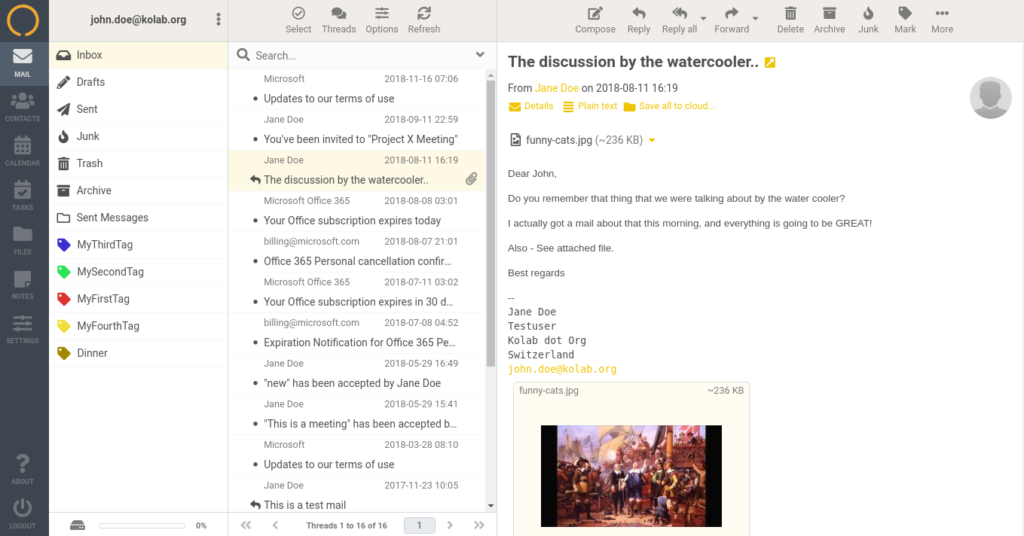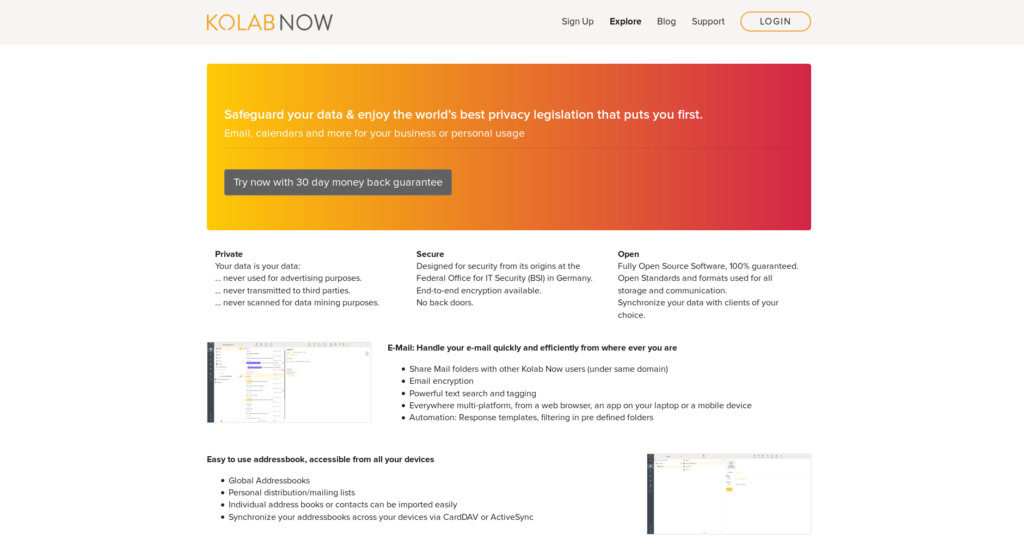We are happy to announce the coming release of our mobile friendly skin for Kolab Now. From 14th September 2019 on, your webmail will look a bit different. With the new skin, you will finally be able to use Kolab Now webmail with the browser on your phone. Check out our previous post for more information.

The default mail deletion behavior changes
We decided that the switch to the new skin would be a good opportunity also make another much requested change. We change the default way of deleting emails in the webclient.
Going forward, when you click on Delete, mails will be moved to your Trash folder, and you can then decide when to ’empty the trash’. Previously, deleted mails where only marked for deletion and hidden immediately without an obvious way to undo, and the hidden mails stuck around, clogging up your storage quota if they were not expunged. This led to a couple of support cases over the years. After some user testing we decided to go with what people are used to from other email clients and providers.
Our website gets a long needed update
Our website has been out-dated for quite some time so we decided to give it a major overhaul. For now, it is reduced to the bare necessities and we will add more content when needed. It should now be easier to find essential information and get access to support – among other things.

Feedback is always appreciated
We hope you like the changes we have been working on. Give us feedback by writing to support@kolabnow.com
Your Kolab Now team

